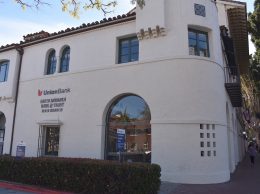Op/ed: Bank of America moral hazard may lead to another financial crisis
By Steven Mintz
How can it be that Bank of America has settled claims in excess of $66 billion for its role in the financial meltdown that spawned the economic recession in 2008 and no top executives have spent any time in jail? How do we explain that regardless of gross violations of ethical standards, no one is held accountable? Now we find out that four whistleblowers will collect a total of more than $170 million for helping investigators get a record $16.65 billion penalty against BofA, among the biggest such payouts to tipsters in history.
This on top of a $50 billion pay-out by BofA to settle past litigation against the bank and Countrywide Financial that was acquired by BofA in the aftermath of disclosures about improper mortgage practices including subprime mortgage loans.
BofA has been a serial offender and settled a variety of lawsuits dating back to June 2008, when the bank reached an agreement with the Securities and Exchange Commission and several states over alleged misrepresentations the bank made to customers about the safety and liquidity of auction-rate securities. Fast forward to March 2014 when the company agreed to $9.5 billion in fines to settle civil lawsuits filed by the Federal Housing Finance Agency on behalf of Fannie Mae and Freddie Mac, which claimed that BofA had fraudulently misrepresented the quality of $57.5 billion worth of residential mortgage-backed securities leading into the financial crisis.
In August 2014, BofA reached a $16.65 billion settlement with the Justice Department over accusations that it duped investors into buying troubled residential mortgage-backed securities through fraudulent mortgage lending and mortgage securitization activities that contributed to the financial recession in 2008. Incredibly, the actual pain of the $16.65 billion settlement may be a lot less because, according to the Public Interest Research Group, taxpayers will shoulder anywhere from $4 to $5.8 billion. This is a result of the refusal of the Justice Department to stop BofA from writing the settlement off as a tax break — which means much of the settlement cost will ultimately be shouldered by U.S. taxpayers.
The Justice Department has sometimes specified that certain settlement costs are not tax-deductible. Recent settlements with JPMorgan regarding mortgage activities, for example, specifically disallowed portions of the settlement from being used as a tax deduction. But instead of disallowing part or all of the settlement from becoming a tax deduction, the BofA settlement takes the extraordinary step of refusing to limit tax deductibility in any way.
The failure of the government to limit the tax deductibility of BofA’s settlement is inexplicable. It rewards bad actors like BofA and creates a “moral hazard” element to improper banking practices by allowing a guilty party to escape the legal (and ethical) consequences of its actions.
We can only hope that the tepid response of the government to wrongdoing by BofA and its top officials doesn’t usher in a new period of risky behavior by banks. Alarmingly, the recently passed appropriations bill opens the door for banks to revert back to risky behavior that was directly responsible for the financial crisis. Apparently, Congress did not learn the lesson that banks should not be allowed to make risky investments using taxpayer-backed money. A key provision in the Dodd-Frank Financial Reform Act will be undone by the new legislation. It had ordered banks to move their riskiest activities — such as default swaps, trading commodities, and trading derivatives — to new entities so that deposits guaranteed by the Federal Deposit Insurance Corp. would not be in danger. This provision goes to the heart of Dodd-Frank because it would let big banks undertake risky activities with funds guaranteed by the federal government and, hence taxpayers.
Albert Einstein famously said that the definition of insanity is doing the same thing over and over again and expecting different results. The failure to hold any top banking officials legally liable for their actions and the relaxation of banking restrictions under Dodd-Frank are worrisome developments. As a nation we seem to suffer from a short-term memory lapse. Our economy cannot handle another financial crisis and chipping away at Dodd-Frank restrictions that are designed to protect the public may lead us down another bumpy road that can threaten our fragile economic recovery.
• Steven Mintz is a professor in the Orfalea College of Business at Cal Poly San Luis Obispo.











